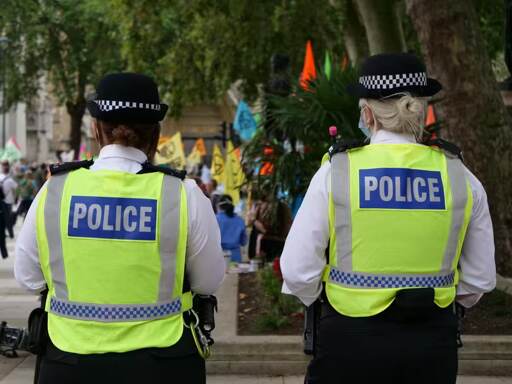The government is scrapping Police and Crime Commissioners (PCCs) in a move that will save the taxpayer £100m over the next four years.
I am abolishing Police and Crime Commissioners.
For over a decade, they have overseen our police forces but have failed to provide the sufficient democratic oversight they were set up to do.
A change that will save us millions and see money reinvested into frontline policing.…
— Shabana Mahmood MP (@ShabanaMahmood) November 13, 2025
David Cameron introduced PCCs in 2013 under the Police Reform and Social Responsibility Act [2011]. Now, the Home Secretary, Shabana Mahmood, has called them a “failed experiment”.
The aim of PCCs was to strengthen local accountability and make police forces more responsive to local needs, addressing the fact that police authorities had been “invisible to the public”.
PCCs’ main responsibilities include setting an annual budget, appointing chief constables, producing a five-year policing plan, and assessing the performance of their force.
According to the BBC, the changes would mean that measures to cut crime would be integrated into a wider range of public services, including education and healthcare. The government would also:
ensure support services for victims and witnesses currently provided by PCCs would continue
The Home Secretary also stated that proposed changes would make the police accountable to their local mayoralties or councils.
When the commissioner’s term ends in 2028, the role will be assumed by an elected mayor or council leaders.
Systemic racism
Only last week, the Canary’s Alex Cocker reported on the Met Police’s internal review, which found that:
The culture of the Met police makes racism inevitable.
The report found that the Mets’ leadership and culture actively work to prevent reforms within the organisation.
The review states:
Systemic racism is not a matter of perception. For almost fifty years, reviews of the Metropolitan Police have documented the harm experienced by Black Londoners, officers and staff. 30 Patterns of Harm turns the lens around. It examines the institution itself, showing how the Met’s systems, leadership, governance and culture produce racial harm while protecting the organisation from reform.
Cocker went on to say:
Dr Daniels also acknowledged the repeated harms inherent in the process of conducting these reviews over and over again. They make Black people recount their trauma, only to see the Met hold up its hands, downplay the evidence, make a new action plan, and change nothing that matters.
To make matters worse, the Met commissioner, Mark Rowley, then demonstrated the report’s findings in action. The commissioner, who has repeatedly refused to acknowledge that the Met is institutionally racist, said of the report:
Our expectation is that leaders will drive this change with their teams and they will be held accountable. When it comes to any individual discrimination, including racism, our commitment is clear: we are continuing to deliver the largest corruption clear-out in British policing history to remove those who do not belong.
Working with Black communities and colleagues whose experiences are reflected in Dr Daniels’ report, we will be applying the same resolve to go after the patterns of discrimination that show up in our operational work, and within the organisation by identifying and addressing their root causes.
As Alex Cocker said:
To read a 126-page report (and a 52-page explainer) stating that the structure of the Met works to prevent anti-racist progress, and then state “our leaders will drive this change” is another level of bigoted ignorance. Anyone capable of shame would wither away on the spot.
Pissing money up the wall
The government has gone on to [say](https://www.gov.uk/government/news/police-and-crime-commissioners-to-be-scrapped#%3A~%3Atext=Police+and+crime+commissioners+(PCCs%2Cfrontline+officers+to+cut+crime.&text=Removing+PCCs+will+cut+the%2Cspent+on+restoring+neighbourhood+policing.) that the move to scrap PCCS would save £20m annually, and that the Home Office would instead fund “front-line policing”. The Home Office stated that the funds would be enough to hire 320 new constables.
Here, the government is guided by the mistaken assumption that more police is what the country actually needs. However, more cops on the beat is exactly the opposite of what’s needed to make communities safer.
And let’s be clear, more police is never the answer. The announcement, as reported by the BBC, includes:
measures to cut crime would be “considered as part of wider public services”, including education and healthcare.
However, instead of pouring resources into more front-line police – it should instead be directing it to these very public service.
As the latest in a long line of reports underscored, the Met, and the police more broadly as an institution, are systemically racist.
Of course, this is simply acknowledging what Black and brown communities have been saying for a long time. They’ve been at the receiving end of police violence since the establishment of the police force in colonial Britain. The police have always acted to protect the white supremacist status quo. This is plain to see for anyone paying close attention.
However, Mahmood fails to see the irony of her move which ultimately recognises the colossal failure of David Cameron’s pet PCC project. After pissing millions up the wall on a police reform project, surely the takeaway should be obvious?
Specifically, police ‘reform’ of the nature Mahmood is once again championing, will only end one way. But aside from the massive waste of money, the real unavoidable issue is the safety and impact this will have on marginalised communities.
Because once again, the government isn’t listening to what all the reports have been saying.
You cannot reform a system built on violent racism and misogyny. It needs abolishing.
Feature image via Ethan Wilkinson/Unsplash
By HG
From Canary via this RSS feed


